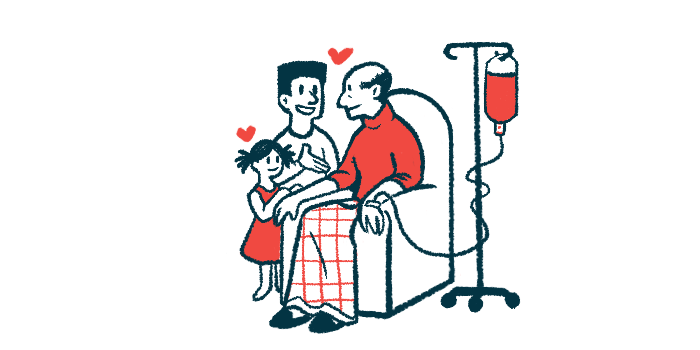Relapsing MS Therapy Briumvi Now Commercially Available in US
TG Therapeutics sets price for the DMT at about $59,000 per year

TG Therapeutics’ Briumvi (ublituximab-xiiy), a CD20 inhibitor recently approved for adults with relapsing forms of multiple sclerosis (MS), is now commercially available in the U.S., the company announced.
The treatment was approved in the U.S. late last year, with indications that include clinically isolated syndrome, relapsing-remitting MS (RRMS), and active secondary progressive MS (SPMS).
“Our team has been working hard to make Briumvi available as quickly as possible, and we are pleased to announce that Briumvi is now available to healthcare providers and patients,” Michael S. Weiss, chairman and CEO of TG Therapeutics, said in a press release.
TG Therapeutics announced in a conference call it has set Briumvi’s price at about $59,000 per year. This makes it the lowest-priced disease-modifying therapy (DMT) available in the market for MS, according to an analysis (scroll to page 28) from the company. Roche’s Ocrevus (ocrelizumab), an MS therapy with a similar mechanism of action and the least-costly drug after Briumvi, costs about $68,000 each year.
TG Therapeutics launched the Briumvi Patient Support program to provide financial assistance, such as co-pay programs, to help patients access the medication. The program also provides information about insurance coverage, assistance with infusions, and guides patients through their treatment journey.
“We continue to be highly focused on ensuring patients who can benefit from Briumvi can easily access treatment. We have built what we consider to be a best-in-class team to support this launch, as well as a robust patient support program designed to aid in accessing Briumvi at all points through the treatment journey,” said Weiss. “We encourage those interested to visit briumvi.com to learn more and also find the full prescribing information.”
Briumvi is an antibody-based therapy designed to kill B-cells, a type of immune cell involved in the autoimmune attacks that cause damage in MS.
It works similarly to the approved therapies Ocrevus and Kesimpta (ofatumumab). But Briumvi can be administered via hour-long infusions every six months, while Kesimpta is injected under the skin every month, and Ocrevus requires longer infusion times.
Briumvi’s approval was supported by data from two Phase 3 clinical trials — ULTIMATE I (NCT03277261) and ULTIMATE II (NCT03277248) — which tested Briumvi against Aubagio (teriflunomide) in 1,094 adults with active relapsing forms of MS.
The trials lasted two years. During that period, patients assigned to Briumvi experienced significantly fewer relapses and had less lesions visible on MRI scans. Disability progression was not significantly affected by Briumvi, but more patients on this medication experienced disability improvement, or a decrease in their disability levels.
Further post-hoc trial analyses showed that Briumvi also outperformed Aubagio in other disability-related measures and quality of life.
TG Therapeutics has filed for ublituximab’s approval in the European Union.







